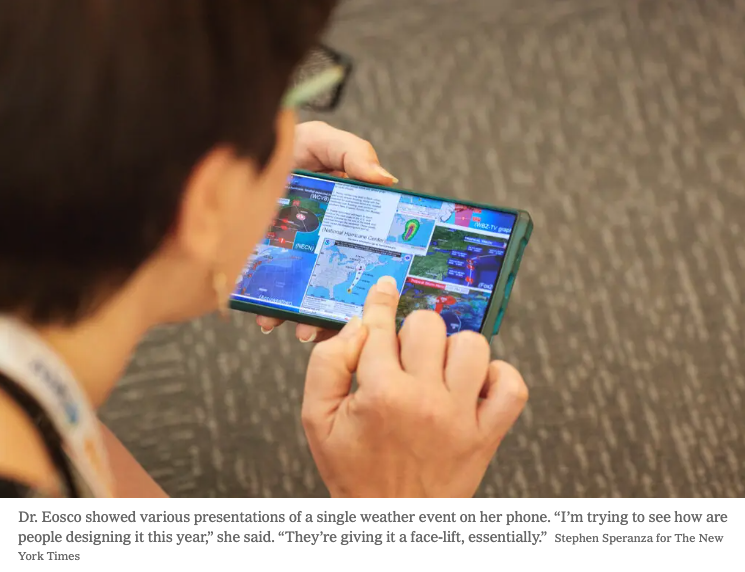Interesting piece in the New York Times about the language we use to talk about extreme weather events and the challenges that poses to people communicating about them.
Scientists are in consensus on the increasing frequency of extreme weather events [but] there was another growing worry: how people talk about the weather.
The widespread use of colorful terms like “bomb cyclone” and “atmospheric river,” along with the proliferating categories, colors and names of storms and weather patterns, has struck meteorologists as a mixed blessing: good for public safety and climate-change awareness but potentially so amplified that it leaves the public numb to or unsure of the actual risk …
In an effort to contain the runaway verbiage, weather scientists have begun to study the impact of extreme-weather language. How do people react to the way the weather is communicated? Do they take the proper precautions? Or do they tune it out?
Read more here:
Matt Richtel, “Bomb Cyclone? Or Just Windy with a Chance of Hyperbole?”, New York Times, Jan. 18, 2023

Leave a Reply